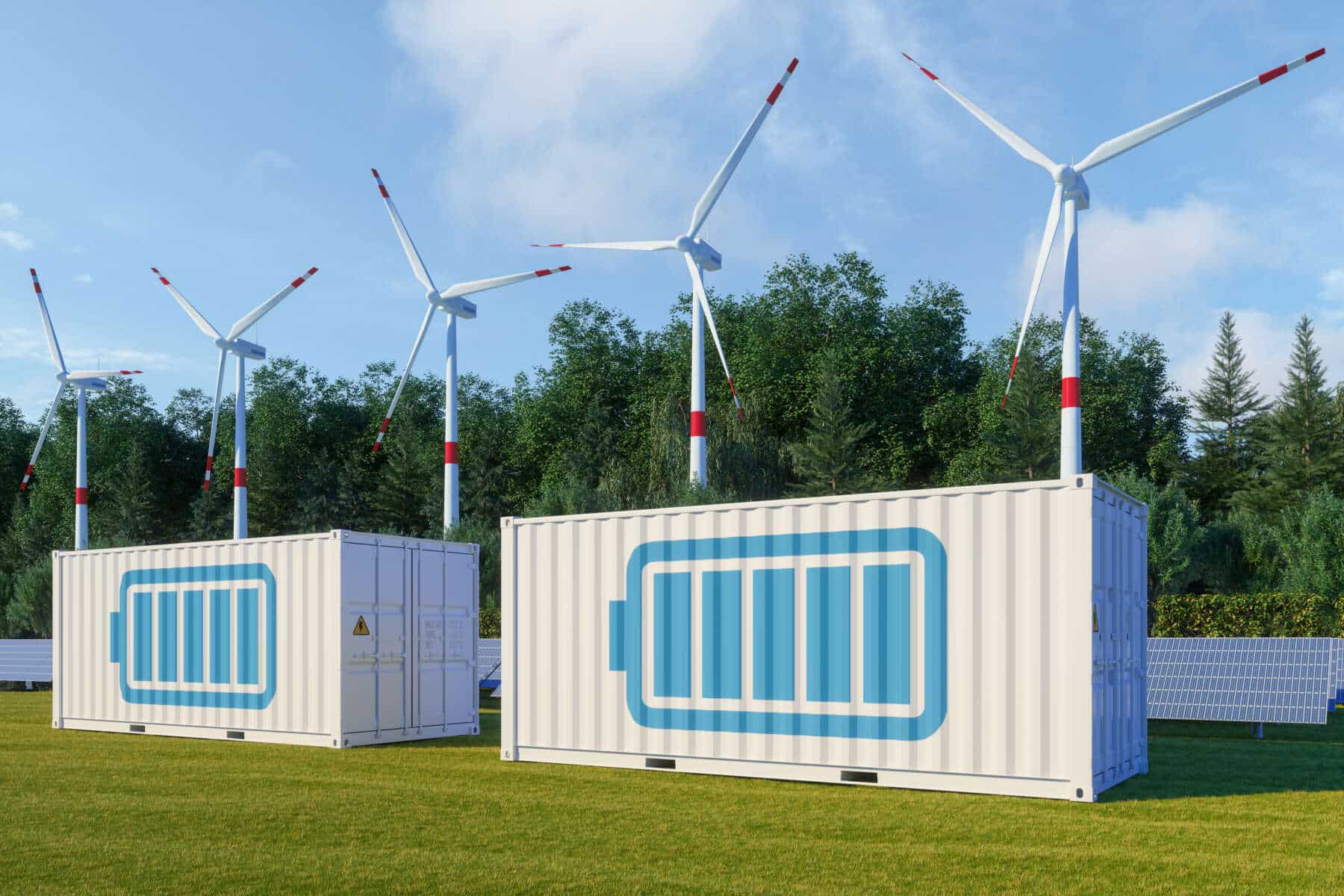RI Public Utilities Commission Report on The Power and Potential of Energy Storage
The RI Public Utilities Commission has released a new report on energy storage in our state. This technology promises lower electricity costs, enhanced power reliability, and a boost to renewable energy, paving the way for a greener, more resilient Ocean State.
August 4, 2023, 12:41 pm
By Uprise RI Staff
Rhode Island is making big strides in the energy sector. The Rhode Island Public Utilities Commission (RIPUC) has been exploring the potential of a game-changing technology: energy storage. In a just released report titled “Examination of the Value of and Need for Energy Storage Resources in Rhode Island”, the RIPUC makes the case for energy storage in our state.
The concept of energy storage is quite simple. Picture it as a colossal battery that can store energy when it’s abundant and release it when it’s needed. This technology is crucial for our state’s energy future, and here’s why.
Imagine a typical summer day in Rhode Island. The sun is blazing, the air conditioning units are humming, and households across the state are consuming lots of electricity. This high demand can strain our electrical grid. Energy storage can help alleviate this strain by storing excess energy during off-peak times and releasing it during these high-demand periods. It’s like having a reservoir of energy that we can tap into when we need it the most.
The RIPUC was tasked with studying the benefits and challenges of energy storage in our state. They were to identify any barriers that might hinder the deployment of energy storage and suggest ways to overcome them. They produced a comprehensive report that sheds light on the potential of energy storage in Rhode Island.
The report highlights that energy storage can deliver significant benefits to our electric power system and society. One of the key benefits is cost reduction. Energy storage can help lower electricity costs by storing energy when it’s cheap and releasing it when prices are high. It’s like buying groceries in bulk at BJs and using them over time.
Energy storage can also enhance the reliability of our power system. In the event of a power outage or a disruption in the power supply, energy storage can provide backup power, ensuring that our lights stay on and our homes remain comfortable. It’s like having a spare tire in your car; you may never need it, but it’s there when you do.
Moreover, energy storage can facilitate the integration of renewable energy sources into our power system. Renewable energy, such as solar and wind power, is clean and sustainable, but it’s also intermittent. The sun doesn’t shine at night, and the wind doesn’t always blow. Energy storage can store excess renewable energy when production is high and release it when production is low, ensuring a steady supply of clean energy.
The report also delves into the current mechanisms for procuring energy storage in Rhode Island. We already have several programs in place that encourage the use of energy storage. For instance, the ConnectedSolutions program incentivizes customers to use energy storage to help balance the power grid. The Renewable Energy Fund (REF) offers financial incentives for installing energy storage systems.
However, the report points out that these existing mechanisms, while beneficial, operate in a disjointed manner. They’re like different pieces of a puzzle that don’t quite fit together. The report suggests that new tariffs or programs may be necessary to fully harness the potential of energy storage and align it with the state’s goals.
RI’s Act on Climate law sets ambitious decarbonization targets for the state, and energy storage is a key technology that can help achieve these goals. The report acknowledges that while energy storage may not be needed in the immediate term to meet the state’s decarbonization mandates, it is likely to become necessary after 2030. This is because as the state adds more renewable energy to its grid, energy storage will be needed to balance the intermittent nature of these resources and avoid energy curtailment. The report also emphasizes that the current regulatory framework could be improved to better support the deployment of energy storage resources, which would align with the goals of the Act on Climate law.
The future of energy storage in Rhode Island looks promising, according to the report. As we strive to increase our use of renewable energy, energy storage will play a crucial role in balancing supply and demand. It will help us avoid wasting excess renewable energy and ensure that we have a steady supply of clean power, even when the sun isn’t shining or the wind isn’t blowing.
But the journey to fully harness the potential of energy storage is not without challenges. We need to create an environment that encourages the deployment of energy storage. It’s a journey that requires the collective effort of policymakers, energy providers, and consumers.
As Rhode Islanders, we have a stake in this journey. The decisions we make today will shape our energy future. By embracing energy storage, we can ensure a reliable, affordable, and sustainable energy supply for our state.






